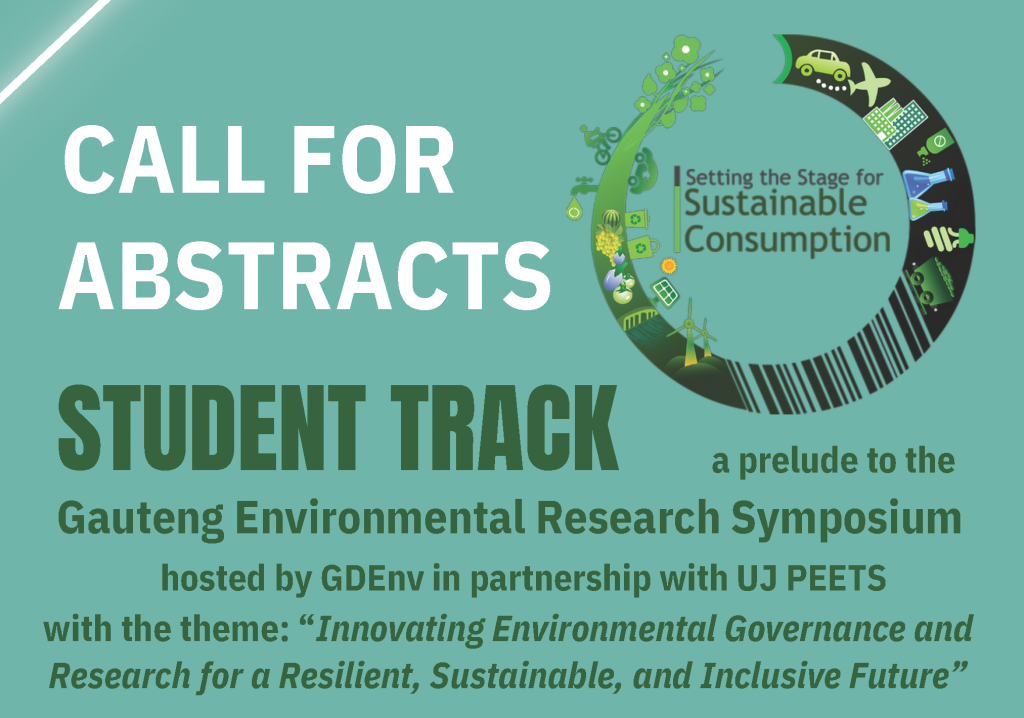Gauteng Environmental Research Symposium
SAVE THE DATE

The Gauteng Department of Environment (GDEnv) and the University of Johannesburg’s Process, Energy & Environmental Technology Station (UJ PEETS) invites local government, academia, industry and civil society to the 7th GAUTENG EVIRONMENTAL RESEARCH SYMPOSIUM [GERS 7].
Theme: Innovating Environmental Governance and Research for a Resilient, Sustainable and Inclusive Future
Date: 16 – 17 September 2025
This transformative two-day symposium is a pivotal opportunity to shape the future of environmental governance and research. Through engaging presentations and interactive discussions addressing pressing challenges in water, energy, air quality and biodiversity, it will build the framework for a resilient, sustainable province. The insights and proposed solutions generated here won’t just benefit Gauteng; they will drive national progress toward a greener, more secure future.
Join us in forging a lasting environmental legacy!
Further details to follow.

